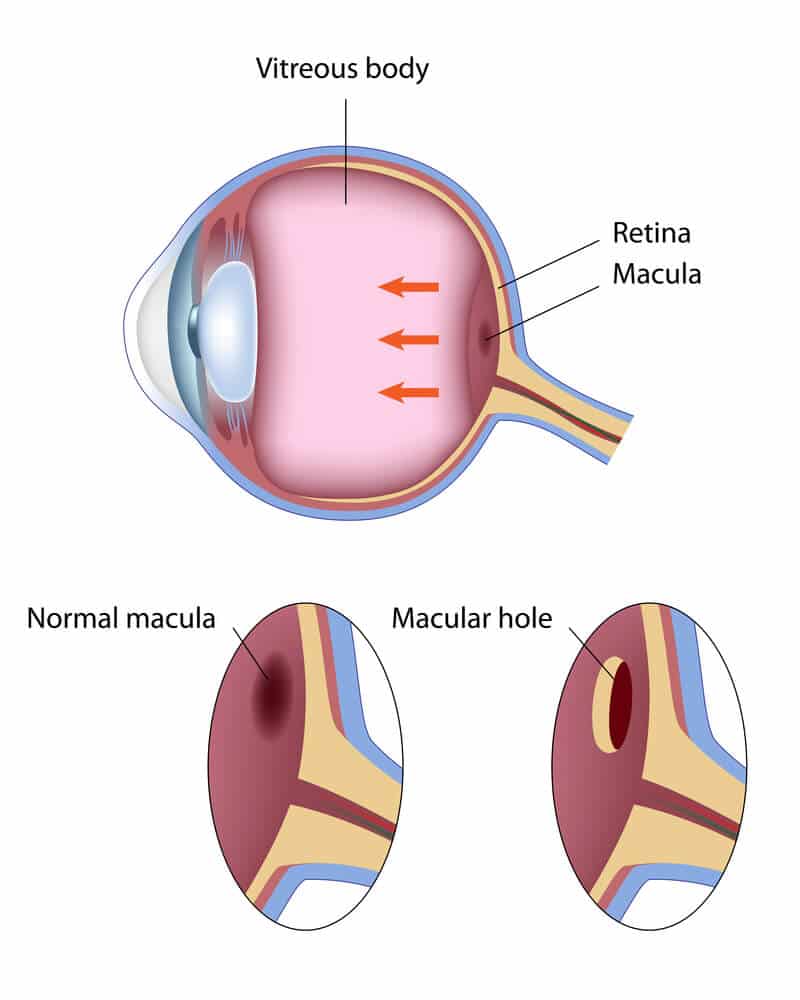A macular hole is a discontinuity or break in the center portion of the retina, a part called the macula. The macula is responsible for the fine central vision used for reading or looking at distant objects. A macular hole is completely different from macular degeneration. Having a macular hole does not predispose someone to developing macular degeneration.

Most macular holes slowly enlarge, giving rise to worse central vision as time passes. However, even left untreated, macular holes almost never result in complete blindness in the eye. A small percentage may resolve spontaneously during the early stages of the condition, but more than 90% of macular holes progress if untreated.
If a macular hole develops, the central vision is distorted or missing. The side or peripheral vision remains normal.
Macular holes are caused by traction on the retina usually induced by either degenerative changes in the vitreous or scar tissue developing on the surface of the retina. Most patients who develop macular holes are in their 50’s or older. Most macular holes occur spontaneously although trauma can lead to holes in young patients. There is no known method of preventing macular holes. Diet, exercise and systemic disease do not appear to play a role in the development of this condition.
The only form of treatment shown to be effective for treating macular holes is a surgical procedure called vitrectomy. This operation involves removal of the vitreous in the back of the eye along with scar tissue on the surface of the retina surrounding the macular hole. A gas bubble is then placed into the eye to close the hole at the end of surgery.
In the majority of cases, the procedure is performed under local anesthesia on an out-patient basis. The patient’s eye is thoroughly numbed, and the patient rests comfortably during the 30 to 45 minute procedure. Patients will need to position in a face-down or prone orientation after surgery for a few days in order to increase the likelihood of surgical success.
Wheaton Eye Clinic physicians have extensive experience in surgical repair of macular holes and will be able to guide your decision regarding macular hole surgery.
Wheaton Eye Clinic’s unparalleled commitment to excellence is evident in our continued growth. Today we provide world-class medical and surgical care to patients in six suburban locations—Wheaton, Naperville, Hinsdale, Plainfield, St. Charles, and Bartlett.
(630) 668-8250 (800) 637-1054